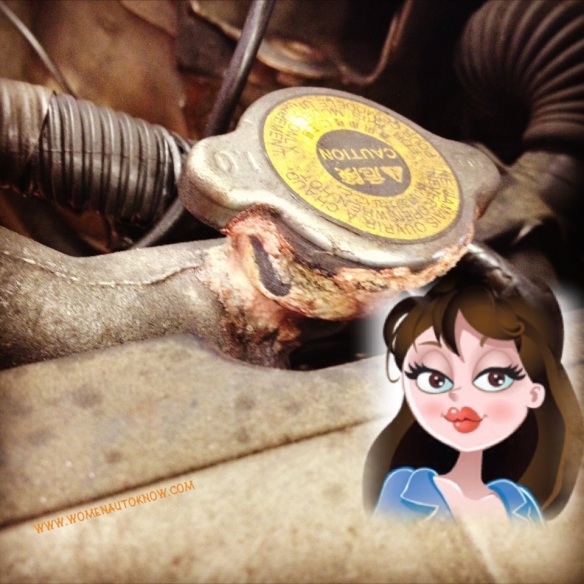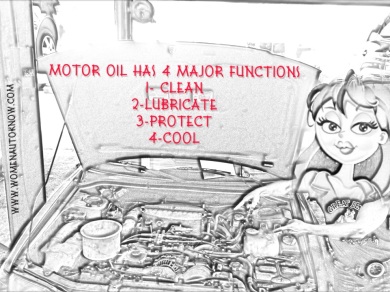Nowadays, people barely read their automobile manual, let alone tinker with their engine. Audra Fordin, the owner of Great Bear Auto and Body Shop in Queens, NY, tells Shine that you can save hundreds of dollars a year by tackling basic repairs yourself. “There are a ton of things you can fix–from wipers, to fuses, to headlights–with ten dollars and a screw driver instead of a trip to the garage.”
10 Painless Tricks to Save Money Every Day
Fordin, a fourth generation mechanic, learned her trade by her father’s side. “My dad was a workaholic,” she laughs. “I was a little girl who wanted to hang with daddy. In order to do that, I had to work.” Fordin is spreading the knowledge. A mom of three, she works with the Girl Scouts and runs workshops and an instructional website, Women Auto Know. “Its always easier to be ripped off when you are uneducated,” she warns. “With education comes confidence. You won’t be messed with as easily.”
Here are her top money-saving tips:
1. Changing your coolant on time can save you at least a thousand dollars in repairs over the course of your car’s lifetime. It helps keep your car cool in the summer and warm in the winter. If you ignore the coolant, your engine can overheat. Fordin says it’s worth the couple hundred of dollars it will cost to drain the entire system of coolant every few years before replacing it with new fluid. Consult your manual to see the exact timing for your car.
2. Maintaining the correct tire pressure has a “massive chain effect,” Fordin says, on the health of your car. The car body will be under less stress, you’ll use less gas, and your tires will last two to three times longer. She recommends checking the tire pressure with a gauge (“kicking them doesn’t work”) every time there is a temperature change of more than ten degrees.
3. If it’s just regular maintenance or a minor repair, go to your garage when you have time. Don’t ask your mechanic to hurry or tell them you have no time to wait. “If they rush, they may make mistakes and you’ll pay for it.”
4. “Don’t say: ‘I know it’s probably something bad!'” If you are ignorant about your car, some mechanics will take full advantage.
5. Ask your mechanic to show you the problem. “If they say you need a new air filter, look at it! New brakes –look at them. Anything they want to replace should be shown to you.”
6. Don’t tell your garage you are going out of town and ask them to hold your car for you. It might be used as a loaner.
7. Don’t ask, “Do I need new tires?” Fordin explains that tires have indicators built in that to help you keep track.They are embedded in the tread and show when the tires begin to wear down. For more info and tips, check out Fordin’s Glove Box Guide.
8. Keep a log maintenance log. Write down your mileage, the repair, and the date. This way you “won’t end up changing your oil 2000 miles before you have to.”
9. Keep your receipts so you have proof of maintenance and repairs. It’s the only way the work will be guaranteed. Producing all of your receipts can also help you sell your car. Fordin says, “It makes the next owner feel comfortable about the purchase.”
10. “If they fix something without your authorization, consider it free,” says Fordin. “It’s your vehicle, you make the rules about what gets repaired.”


